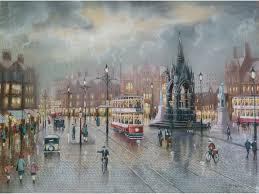 Well, it was better than The Tudors, Versailles and The Great: it did bear a reasonably close resemblance to actual historical fact. And Marie Antoinette’s been given a raw deal by history, blamed for the failings of her husband and the failings of the ancien regime itself: she deserves a series telling events from her point of view. This is genuinely trying to do that
Well, it was better than The Tudors, Versailles and The Great: it did bear a reasonably close resemblance to actual historical fact. And Marie Antoinette’s been given a raw deal by history, blamed for the failings of her husband and the failings of the ancien regime itself: she deserves a series telling events from her point of view. This is genuinely trying to do that
It wasn’t bad at all. The first episode showed the difficulties she faced as a young outsider at etiquette-bound Versailles, under tremendous pressure to produce an heir but with a husband who wasn’t up to the task; and it did a reasonably good job of it.
Some bits were a bit daft, though. Marie Antoinette was dispatched to the French border without a single chaperone/lady in waiting, only a dog. The dog was sent back to Austria. And she (Marie Antoinette, not the dog) hugged the sole French representative who’d arrived to meet her. I know there must be budgetary constraints, but surely they could have managed a few more hangers-on. Instead of a dog. And the huggy bit was a bit silly too. As was a load of courtiers singing “What shall we do with the drunken sailor?”. And a manservant dressing up as a maidservant.
It was generally OK, though. Not brilliant, but it’s having a decent go at showing events from Marie Antoinette’s viewpoint, and a sympathetic one. I’ll definitely keep watching!

